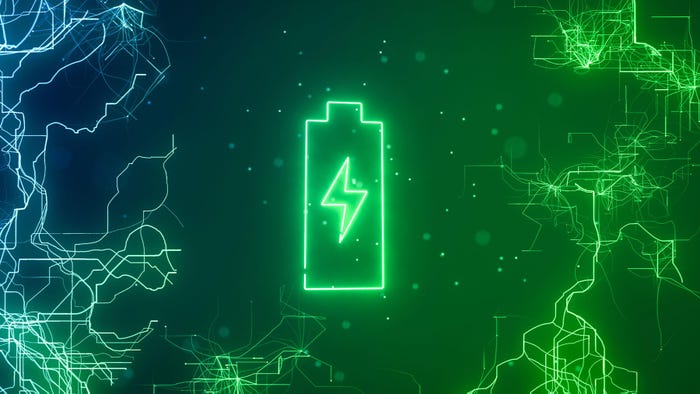There are many ways to generate electricity for data centers. But until recently, there was only one viable option for storing electricity at scale: Lithium-ion batteries, which are problematic from both sustainability and cost-efficiency perspectives.
Now, a new option is emerging in the form of organic flow batteries. Alongside other alternative types of battery technologies, like sodium-ion, organic flow solutions could help the data center industry overcome one of its longest-standing energy hurdles by providing an inexpensive, scalable, and sustainable way to store electricity.
How Do Data Centers Use Batteries?
Data centers don’t typically rely on battery power during normal operations. However, batteries are a critical part of the backup power infrastructure in most data centers.
Specifically, batteries provide a way to store energy inside Uninterruptible Power Supply (UPS) devices, which keep power flowing in the event that a data center’s main energy source fails. Maintaining uptime for IT equipment is a key focus for data centers, and batteries inside UPS units are a key part of most data center uptime strategies.
In addition, batteries can potentially play an important role in data center sustainability by capturing and reusing sustainable energy. For example, for a data center aiming to increase its use of renewables, batteries could store excess energy generated by solar panels during the day and use it to power the facility at night. Or spare electricity produced by wind farms on windy days could reside in batteries until gusts dissipate and it’s needed.
Currently, sustainability techniques like these are not feasible in most cases because batteries are expensive relative to the amount of energy they can store. But if batteries became less expensive, they would offer a more realistic way to power data centers with renewables 24/7, something that has traditionally been challenging due to the intermittent availability of most renewable energy sources.
Lithium-ion batteries in data centers create environmental burdens through destructive mining practices and disposal challenges. Image: Alamy.
The Drawbacks of Lithium-Ion Batteries for Data Centers
To date, most of the batteries inside data centers use lithium-ion technology to store power. Lithium-ion batteries are relatively inexpensive, especially compared to other types of batteries. But they come with some steep drawbacks:
-
Environmental harm: Most lithium is sourced by mining, an environmentally disruptive process. Lithium-ion batteries can also produce hazardous waste that leaches into the environment when they are not disposed of properly.
-
Degradation: The capacity of lithium-ion batteries degrades over time, requiring relatively frequent replacement to maintain adequate power storage abilities.
-
Fire hazards: Lithium-ion batteries pose a potential fire risk as they can explode when overheated.
-
Geopolitical concerns: Currently, most lithium mines are concentrated in a handful of countries, with China ranking among the top three global lithium exporters. (Despite having its own substantial lithium reserves, the U.S. relies almost entirely on imports for its lithium supply.) This is a complicating factor for businesses concerned with becoming dependent on batteries whose raw materials may become unavailable in the case of trade restrictions.
For years, the data center industry has tolerated these disadvantages because lithium-ion batteries are one of the only technologies capable of providing battery capacity at scale. Alternative types of batteries – like nickel-cadmium and lead-acid batteries, which are also sometimes used in UPS devices – tend to be even more environmentally hazardous, expensive and unreliable.

Organic flow batteries store electricity using organic material instead of a metal like lithium. Image: Alamy.
Organic Flow Batteries as a Data Center Energy Solution
Now, a new type of battery technology, called organic redox flow (or just organic flow) batteries, offers a potential way to build battery infrastructure for data centers without the sustainability, geopolitical and fire-hazard risks of lithium-ion.